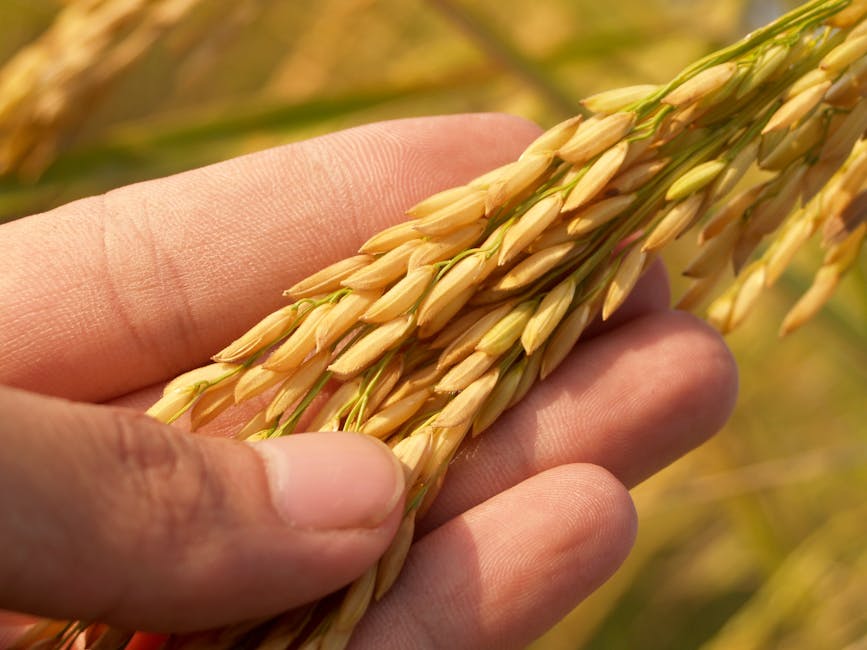
Introduction
The agriculture sector is undergoing a significant transformation, driven primarily by advances in AI in agriculture and other technological innovations. With the growing global population and the pressing need for sustainable practices, it has become imperative to explore how smart farming techniques are reshaping the farming landscape. In this blog post, we will delve into how precision agriculture and agricultural technology are enhancing crop yields and promoting sustainable farming practices.
The Role of AI in Agriculture
Artificial Intelligence is revolutionizing the agricultural industry through data-driven solutions that increase efficiency and productivity. By analyzing vast amounts of data from various sources such as satellite imagery, weather forecasts, and soil conditions, AI enables farmers to make informed decisions that lead to optimized resource use.
- Crop Monitoring: AI-driven tools can monitor crop health by analyzing data from sensors and drones.
- Pest and Disease Detection: Implementing AI systems helps in the early detection of pests and diseases, reducing crop loss.
- Yield Prediction: Machine learning algorithms can predict crop yields based on historical data and current conditions.
Smart Farming: A Game Changer
Smart farming integrates advanced technologies like IoT, AI, and robotics to optimize farming practices. By utilizing smart devices, farmers can monitor their fields in real-time, leading to better management of crops and resources.
For instance, devices equipped with sensors can provide data about soil moisture levels, allowing farmers to irrigate crops only when necessary. This not only saves water but also reduces operating costs.
Benefits of Smart Farming
- Increased Efficiency: Automating processes like irrigation, fertilization, and harvesting improves overall efficiency.
- Cost-Effectiveness: Reducing labor costs and optimizing resource use translates to significant savings.
- Improved Sustainability: By minimizing waste and maximizing yield, smart farming promotes sustainable practices.
Precision Agriculture: Key to Crop Yield Optimization
Precision agriculture refers to the use of technology to monitor and manage field variability in crops. By applying agricultural inputs at the right time and in the right amount, farmers can significantly enhance their crop yield optimization.
Technologies such as automated farming systems, GPS mapping, and remote sensing play a vital role in this approach. For example, GPS technology allows for precise field mapping, which can guide tractors and other equipment during planting, fertilizing, and harvesting.
Technological Innovations in Precision Agriculture
- Drones: These are used for aerial surveillance of crops, providing farmers with insights on crop health.
- Soil Sensors: Sensors placed in the soil can relay real-time data about moisture levels, enabling timely irrigation.
- Data Analytics: Analyzing accumulated data helps farmers make better decisions about crop management.
Sustainable Farming Practices
The integration of technology in agriculture paves the way for sustainable farming practices. Modern farming techniques aim to produce food efficiently without compromising the ability of future generations to meet their needs.
Technologies that support sustainability include:
- Crop Rotation: This practice enriches the soil and reduces dependency on pesticides.
- Conservation Tillage: Minimizing tillage preserves soil structure and health.
- Precision Fertilization: Applying fertilizers precisely reduces environmental impact and increases efficiency.
Challenges Facing Agricultural Technology
Despite the numerous benefits of agriculture innovation, the sector faces challenges in implementing these advanced technologies. Key challenges include:
- High Initial Investment: The cost of implementing new technologies can be prohibitive for small-scale farmers.
- Training and Skill Gaps: Farmers need training to effectively use these technologies, which may not always be available.
- Data Privacy and Security: With the increase in data collection, concerns about data security and privacy are rising.
The Future of AI in Agriculture
The future of agriculture is undeniably tied to the advancements in AI and other technologies. As methods become more refined, farmers will be able to produce more food while conserving resources and minimizing environmental impact.
Moreover, initiatives that promote research and development in sustainable farming technologies can help address some of the existing challenges while ensuring food security for the growing global population.
Conclusion
The intersection of AI technologies and agriculture marks a significant leap toward enhanced crop yields and sustainable farming practices. By embracing data-driven farming methods, farmers can optimize their operations, ensuring profitability while advocating for the planet. As agricultural technology continues to evolve, the potential for farming is limitless, paving the way for a more sustainable and efficient future.